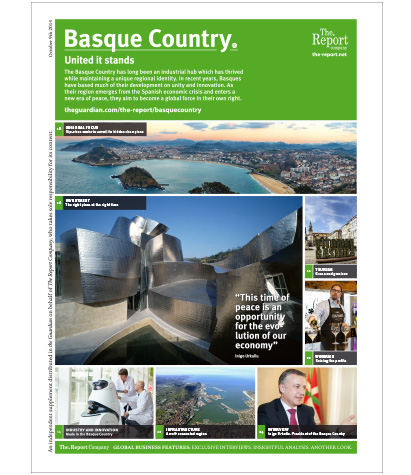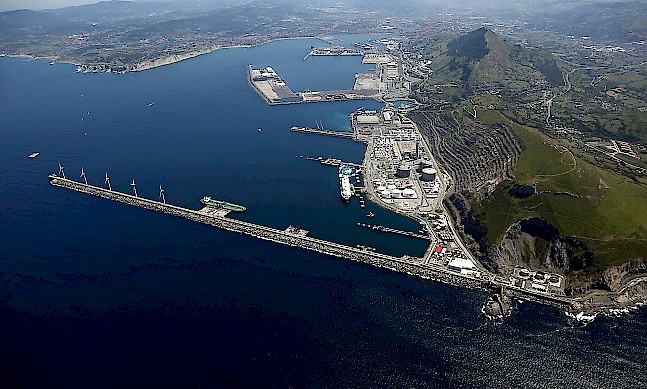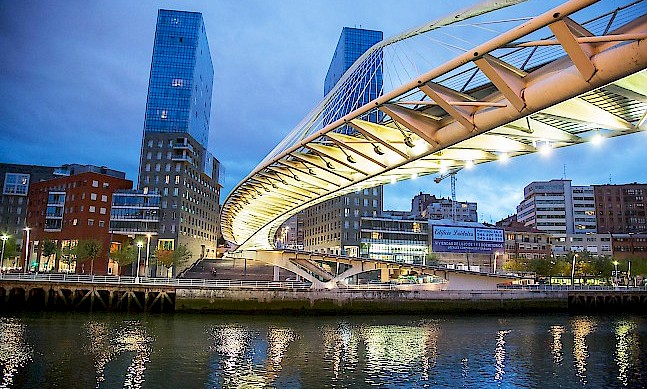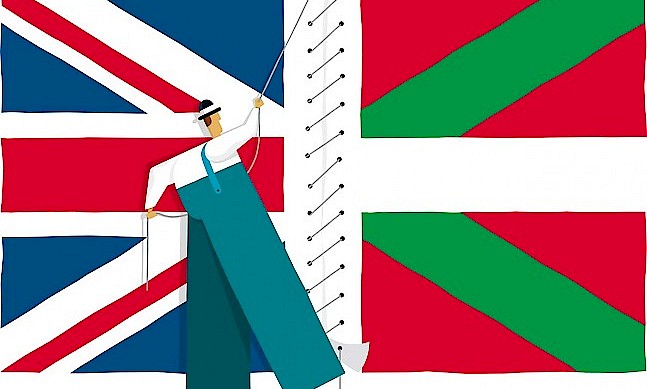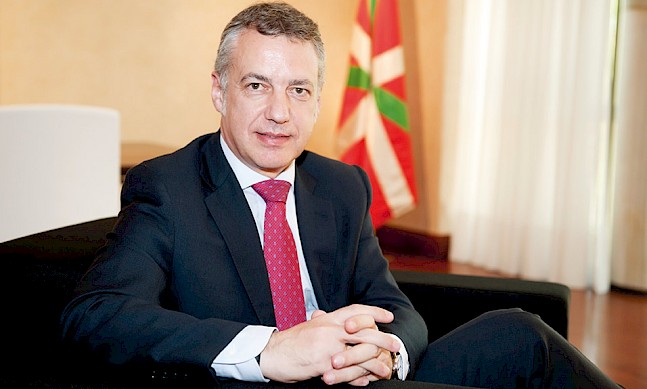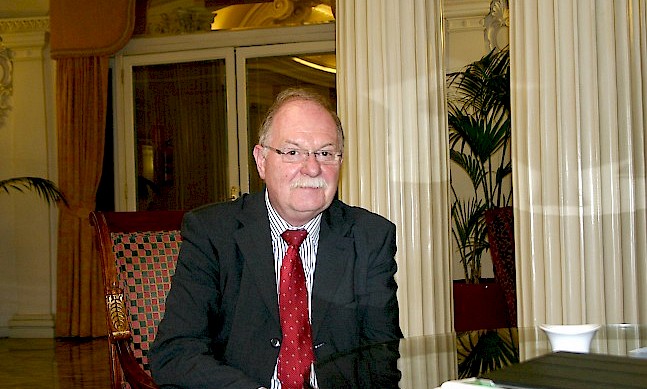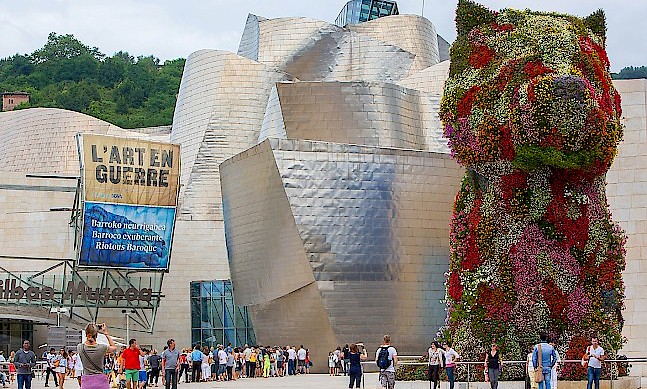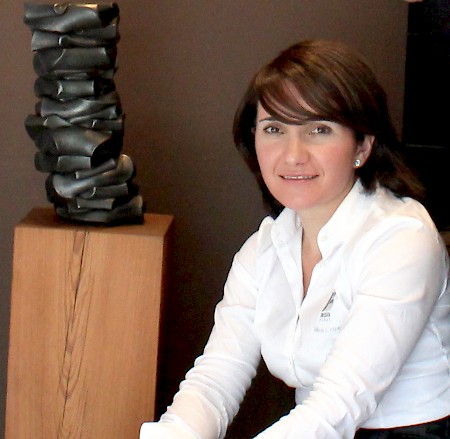 Photo: Irizar Forge
Photo: Irizar Forge
Irizar Forge is a quintessentially Basque company: an industrial powerhouse that has been in the hands of the same family for four generations, it embodies the Basque economic philosophy of innovation and resilience. Maria Lasa Irizar, the company’s managing director, is now taking this almost-century-old firm into new markets with new products. The Report Company met with her to find out more.
The Report Company: Irizar Forge has been in the same family for 92 years. What role has each generation of the family played in getting the company to where it is today?
Maria Lasa Irizar: The success of having come this far partly depends on a good succession process. Generational changes are delicate moments, both at the family level and the company level. You have to do things right, because it could mean the difference between success and failure. In our case, we have had four generations in this company, which means three successful succession processes. Coexistence in our case has been easy; we are a simple, down-to-earth family and perhaps that has made things easier as well.
TRC: What does the Irizar name mean to the Basque Country?
MLI: Irizar is our family name and our family brand. It is actually quite a common surname in this area; you can find a shoe store named Iriza, a bakery named Iriza, and there is even a large company named Irizar that makes buses and coaches. But Irizar Forge from Lazkao is a legendary company. Lazkao once had five forges working in the industrial sector, and now there are only two left.
TRC: What factors led to the company’s resilience in the face of the economic crisis, which was disastrous for many other businesses?
MLI: It depends on your company’s financial situation, but you could view the crisis as a moment of opportunity. I think that is the way to look at it, from a positive angle. Of course this requires solid finances to begin with, because that makes everything easier. In our case, the crisis coincided with our succession process, which made everything even more delicate. But things turned out well, and we have, in essence, reinvented ourselves and detected new market niches that we want to explore and exploit.
TRC: What are the major products that Irizar Forge currently produces?
MLI: From the point of view of production, we make hooks for cranes, which are the most critical element in a crane; if the hook breaks, the load falls. That has always been our star product. We have auxiliary products as well, because you end up embracing the complete scope of supply: rope sheaves, forged wheels and so on. But it was our success and our reputation for hooks that gave us the key to the other products.
“We have had four generations in this company, which means three successful succession processes. Coexistence in our case has been easy; we are a simple, down-to-earth family and perhaps that has made things easier as well.”Post This
TRC: What new market niches have you identified?
MLI: Throughout our company’s history, we were very much tied to cranes as we focused on making this critical component, the hook. I joined the company 11 years ago, working in management, ISO certification and sales before becoming managing director. On my business trips I used to think, why only cranes? Hooks can be put to other uses as well, surely? That is how we began to get involved with the offshore and subsea market. Any offshore structure has mooring lines to anchor it. These lines used to be chains, but chains are very heavy. Now they include rope, and they also have hooks, so here was another market that we could enter.
TRC: What percentage of your activities does this market now represent?
MLI: We started exploring this field around three years ago, and making a few sales mostly in spare parts. Our main business is still in cranes, and we might get two or three projects a year in mooring. Now we want to make this a stable activity for us and assign a project manager to it. Our goal is to reach a 50:50 balance between our lifting and our mooring projects by 2016.
TRC: What role did research and development play in shifting from manufacturing lifting hooks to mooring hooks?
MLI: Our R&D has worked in two directions. Regular overhead cranes are big but we are talking about a lifting capacity of 500 or 600 tonnes at the most, and we had the capacity to make stronger hooks than that. Since we were already exploring subsea mooring opportunities, we began looking at offshore platforms, and discovered different cranes that required the kind of super-strong hooks that we were ready to make. Part of our R&D has been aimed at this sector too, since these other hooks require different materials and comprise different sections. We asked ourselves, who is making these hooks right now? These hooks are not forged, they are cast, so our new competition was the casting industry. We wondered if we could get these bigger cranes to switch to forged hooks. Cast hooks break without warning, causing accidents, while with forged hooks, any deformities that develop act as an early warning for technicians, giving them time to order a replacement. They are safer, but changing the mentality of the industry means speaking with technical directors and doing a lot of background work that goes well beyond talking to sales departments. This is what we are working on right now. We have identified the leading companies in the East and the West, and we are in talks with them. Other companies will then follow the industry leaders.
“The Basque Country is already recognised at the European level as an industrial cluster, much as northern Italy is. Everyone knows that there is a high concentration of industries that transform metal in every way.”Post This
TRC: You worked on ISO certification for some time before becoming managing director. Can you tell us a little more about this process?
MLI: I view ISO certificates as passports that you need in order to enter the foreign markets you are interested in. Some of these certificates are not even recognised here at home, but you need them if you want to work in, say, Norway. They are in a way barriers to entry, and the message that is given is: if you don’t have them, don’t even try to come here.
TRC: How does the company contribute to the R&D and industry clusters that have been formed in the Basque Country?
MLI: I think the Basque Country is already recognised at the European level as an industrial cluster, much as northern Italy is. Everyone knows that there is a high concentration of industries that transform metal in every way: casting, forging, steel factories and so on. The Basque government did a good thing by identifying what we each specialise in, as we Basques are not really into cooperation; we are highly individual. It’s true that for the last 10 years the chambers of commerce have been pushing for models based on cooperation, export groups and other collaborative projects, but we tend to be more solitary than the Italians, for instance. It is our character. The chamber really needs to come over to get my neighbour and me to work together in a business partnership; otherwise it will not occur to us.
TRC: What steps did you take to turn what was once a family-owned SME into an award-winning company with a big presence in the international markets?
MLI: Part of the secret was getting a head start. Also, we are currently in the middle of a very large investment process for a company of our size, and we started investing before other companies did. Being the first gives you a competitive advantage, and we are good at that; we are very bold. The previous generation of Irizars were bold like that, too. When my grandfather took over from my great-grandfather, he built a new, larger workshop and moved the company there. When my parents took over, they began to export. This was in the 1980s, while everyone else didn’t begin to export until the 1990s.
TRC: What is your mission for the company over the next five years?
MLI: We are making the switch in market niches, from overhead cranes to offshore cranes. We are expanding our forging warehouse where the metal is transformed into a hook, which is our core business.
TRC: Where are your export markets?
MLI: For the overhead crane industry, Germany and Italy have always been important markets. For offshore cranes, Korea, Singapore, the United States and Norway. As for mooring, we are working in the Gulf of Mexico, Scotland, Norway and The Netherlands, and the Brazilian coast, where they are doing offshore exploration at increasingly deeper levels, and that plays to our advantage because of our product’s added safety: when you bring material 4,000 metres below sea level, you don’t want to be forced to review it for safety every two years – you want to forget about it for the next 20 years. That is where we come in. We are not cheap; our products are more expensive, and selling is not easy, but these people are thinking of the long term, and would rather pay more upfront for a product that will not give them any trouble for many years to come.
TRC: What do you think Basque companies need to do to improve on?
MLI: I am working with Orkestra, a centre for the analysis of Basque industrial policy and strategy that partners with Deusto University. I am working with them because there is a concept they use that I really like: “hidden champion.” Orkestra recently included us on their list of hidden champion companies in the Basque Country. We asked what that was, and when we learned that these are highly successful yet highly unknown businesses, we could really relate to that. I think that many other Basque businesses are hidden champions as well. Very hidden, as a matter of fact. We have always been very focussed on going about our business but not wanting to show up in the papers or become famous in any way. We have been silent for a long time, partly due to our nature, and partly to our recent history of terrorism. However, I think that we need to acknowledge that times have changed, and start doing more to ensure that people on the outside know about all the good things that we are doing. I think we need to sell ourselves a little better, and believe in ourselves.
TRC: How would you like the Basque Country to be perceived overseas?
MLI: In Europe, mostly, you don’t need to provide many explanations, as people are aware of us and what we do. But in some other countries, you have to sell yourself under the Spain brand, otherwise people can’t place you on the map.



